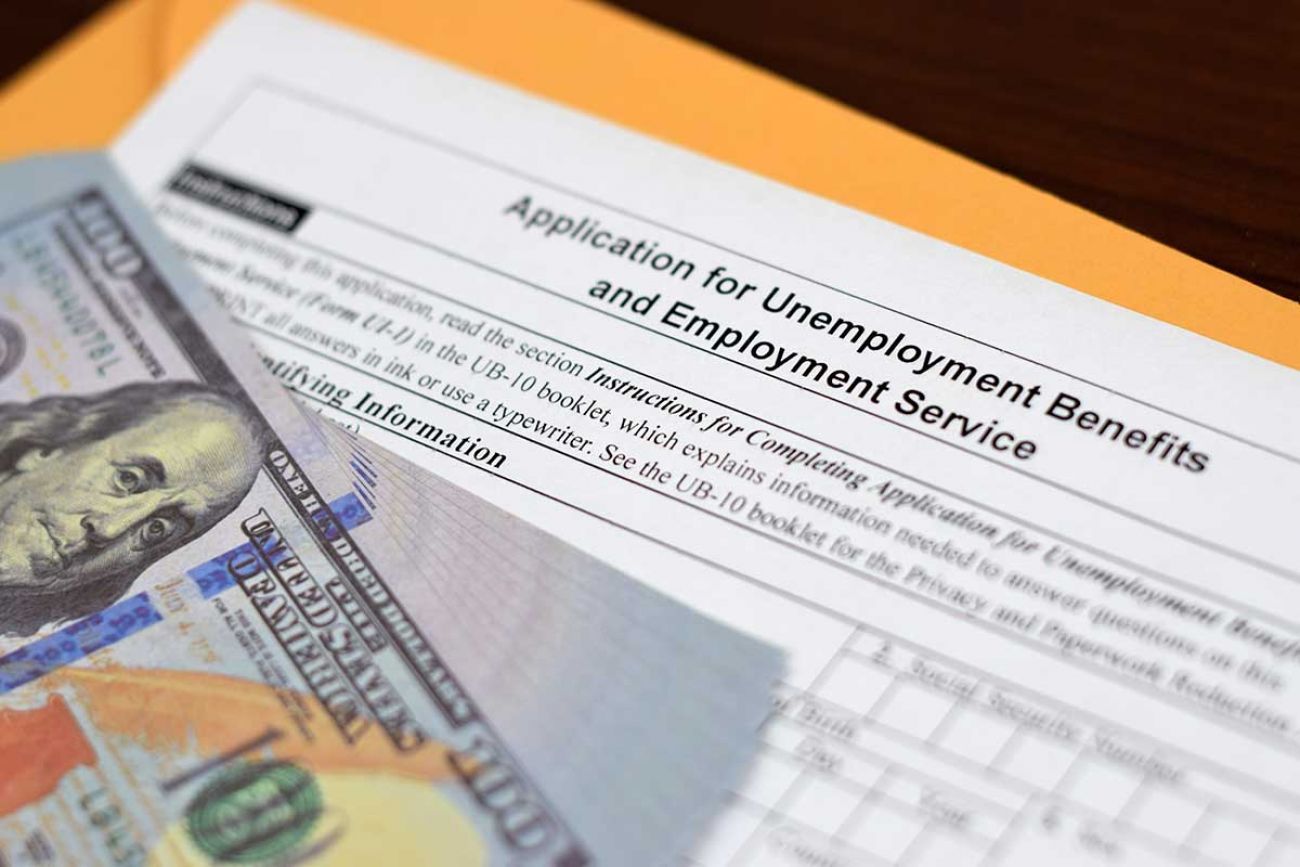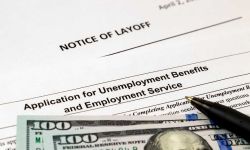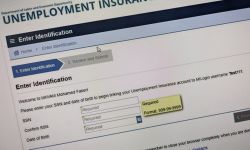Feds relax rules for workers ordered to repay Michigan unemployment benefits

April 8: Michigan jobless agency pauses collections in alleged overpayment cases
March 28: Michigan unemployment agency seeks bids to replace troubled computer system
March 18: Audit: Michigan unemployment agency hired identity thieves to process claims
Feb. 16: Michigan unemployment 2021 tax form coming, even as benefit waivers linger
A wave of Michigan residents who were told they had to repay their pandemic unemployment benefits may no longer need to do so.
Gov. Gretchen Whitmer announced on Monday that the U.S. Department of Labor granted a request by the state to expand eligibility for waivers for workers who’d received Pandemic Unemployment Assistance and other temporary federal benefits from spring 2020 through Sept. 4, 2021.
About $5.7 billion in unemployment benefits were improperly given to people who said they were jobless during the pandemic, the state said in January. The payments were made with federal funds to people who would not normally be eligible for benefits, including part-time, self-employed and gig workers.
Related:
- Michigan unemployment fraud total grows
- Whitmer: Replace Michigan’s unemployment system. Critics: What took so long?
- What to do if you are asked to recertify Michigan benefits
- Michigan unemployment agency still needs fixing, lawmakers hear
However, many of them in the past few months received letters saying they’d been found to be ineligible for the payments — and would have to repay them. In some cases, amounts sometimes exceeded $20,000.
But the federal ruling means the state can now waive repayments for those who applied for the benefits in good faith.
“Michiganders should not be penalized for doing what was right at the time they applied for federal pandemic benefits,” said Whitmer in a statement released about 6 p.m. Monday.
Since the pandemic started, $39 billion has been distributed in jobless benefits in Michigan to 3.45 million people. That represents about 70 percent of Michigan’s workforce at the start of the pandemic.
The new guidance follows Whitmer’s meeting with Labor Secretary Marty Walsh and Unemployment Insurance Agency Director Julia Dale’s meeting with Department of Labor Director of Intergovernmental Affairs, Richard Cesar, to request the waivers, according to the state.
Dale, in a hearing with legislators in mid-January, said that $8.5 billion was paid by Michigan to unemployment accounts later deemed ineligible. About $2.8 billion was the result of imposter fraud, with the balance given to a then-undetermined number of people in a variety of circumstances that, the UIA believed, should be forgiven.
However, until the waivers were authorized, everyone receiving notice of overpayments — even if the state made a mistake — had to plan on making restitution.
“We’re hopeful the guidance issued … today will enable states like Michigan to prevent any further undue hardship for claimants,” said U.S. Labor Secretary Marty Walsh in a statement.
Five situations will allow Michigan to seek blanket waivers:
- An individual responded “no” to being able and available for work and the state issued payment for pandemic benefits without confirming eligibility.
- An individual was eligible for payment and the state issued payment at a higher rate under the expanded temporary federal program.
- Someone responded “no” to being unemployed, partially unemployed or unable or unavailable to work due to approved coronavirus-related reasons, and the state issued payment, resulting in overpayment for the week.
- Someone submitted required proof of earnings, but the state incorrectly processed it, resulting in a higher weekly benefit amount.
- The individual submitted proof of self-employment earnings, and the state incorrectly processed the information, resulting in overpayment.
The state is reviewing how the categories would apply to claims in Michigan and determining how quickly the waivers could be issued.
Information on how many people are affected is not available.
“Determining that number will be part of the process UIA goes through as we decide how to apply the waivers and to which claims,” UIA spokesperson Nick Assendelft told Bridge.
In July, UIA issued approximately 350,000 waivers to ensure that Michiganders who received overpayments through no fault of their own were not required to repay such assistance they received during the pandemic to the federal government.
People affected by the new UIA waiver determinations will receive a letter and notification through their online MIWAM accounts.
“We ask that claimants remain patient and reply to any correspondence from UIA in a timely manner so we can get through these cases and provide relief to those facing repayment,” Dale said.
In November, an audit of the agency found that about $3.9 billion had been made in improper payments and likely wouldn’t be recouped. Dale took over the agency in October, the third director within a year.
Business Watch
Covering the intersection of business and policy, and informing Michigan employers and workers on the long road back from coronavirus.
- About Business Watch
- Subscribe
- Share tips and questions with Bridge Business Editor Paula Gardner
Thanks to our Business Watch sponsors.
Support Bridge's nonprofit civic journalism. Donate today.
See what new members are saying about why they donated to Bridge Michigan:
- “In order for this information to be accurate and unbiased it must be underwritten by its readers, not by special interests.” - Larry S.
- “Not many other media sources report on the topics Bridge does.” - Susan B.
- “Your journalism is outstanding and rare these days.” - Mark S.
If you want to ensure the future of nonpartisan, nonprofit Michigan journalism, please become a member today. You, too, will be asked why you donated and maybe we'll feature your quote next time!




